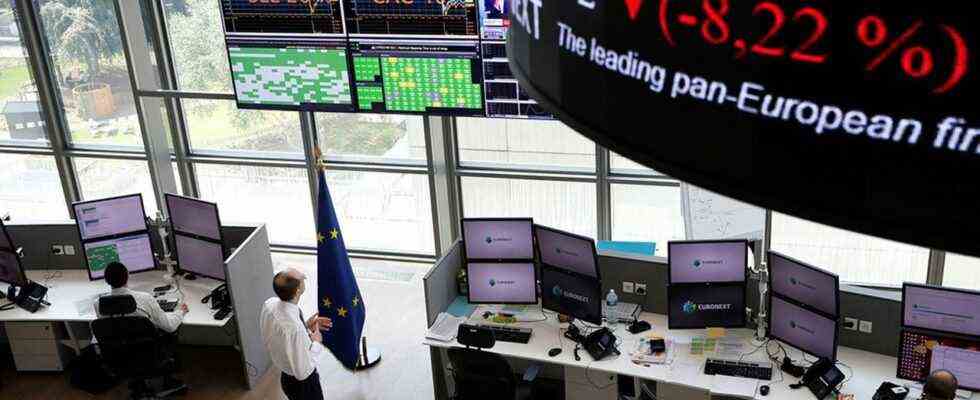Posted on 20 Dec. 2021 at 10:18Updated 20 Dec. 2021 at 10:53
The concerns of European stock markets are growing as Christmas approaches. The fifth wave of Covid-19 and the outbreak of Omicron variant cases , which push European countries to introduce new restrictions , stumble the markets on Monday. A little less than an hour after the start of trading, the Paris Bourse lost 2.07% to 6,783.02 points, having already closed on a drop of 1.12% on Friday.
The atmosphere was just as gloomy in other European financial centers. In Germany, the Dax fell 2.52%, in Spain, the Ibex 35 dropped 2.25%, while the FTSE 100 lost 1.73% in London.
Same movement on the side of the oil markets where the price of a barrel of Brent for delivery in February lost 5.11% to 69.79 dollars, when that of West Texas Intermediate (WTI) for the month of January, of which it is the last trading day, dropped 5.67% to 66.84 dollars.
Sanitary restrictions
“Investor risk sentiment was undermined by new evidence over the weekend of Omicron’s disruptive impact,” said Lee Hardman, analyst at MUFG. The Netherlands took the drastic step of confining its residents, and all non-essential shops, restaurants, bars, cinemas, museums and theaters closed on Sunday until January 14.
Similar restrictions have been introduced in Denmark and Ireland. In Germany, the group of experts advising the government, for its part, pleaded for further reductions in contact with the population “as soon as possible”.
Central bank disengagement
In this anxiety-provoking climate, investors are nervous. All the more so since this new epidemic wave is part of a context of central bank disengagement. The US Federal Reserve has therefore decided to reduce economic support measures more quickly in force throughout the health crisis. This policy change is expected to result in three interest rate hikes in 2022.
In addition, still in the United States, investors take a dim view that Democratic Senator Joe Manchin announced that he would reject the program of social and ecological reforms which aims to transform America, deeming it too expensive in times of inflation.
In Europe, the Bank of England has already raised its rates for the first time since the pandemic. The ECB has also confirmed that it will gradually stop its pandemic emergency purchasing program (PEPP), with an envelope of 1.850 billion euros. The market environment therefore remains fragile, “mixed with concerns about the rise in inflation that central banks seek to contain and a virus that threatens to overwhelm global health systems”, decrypts Michael Hewson, analyst at CMC Markets .

